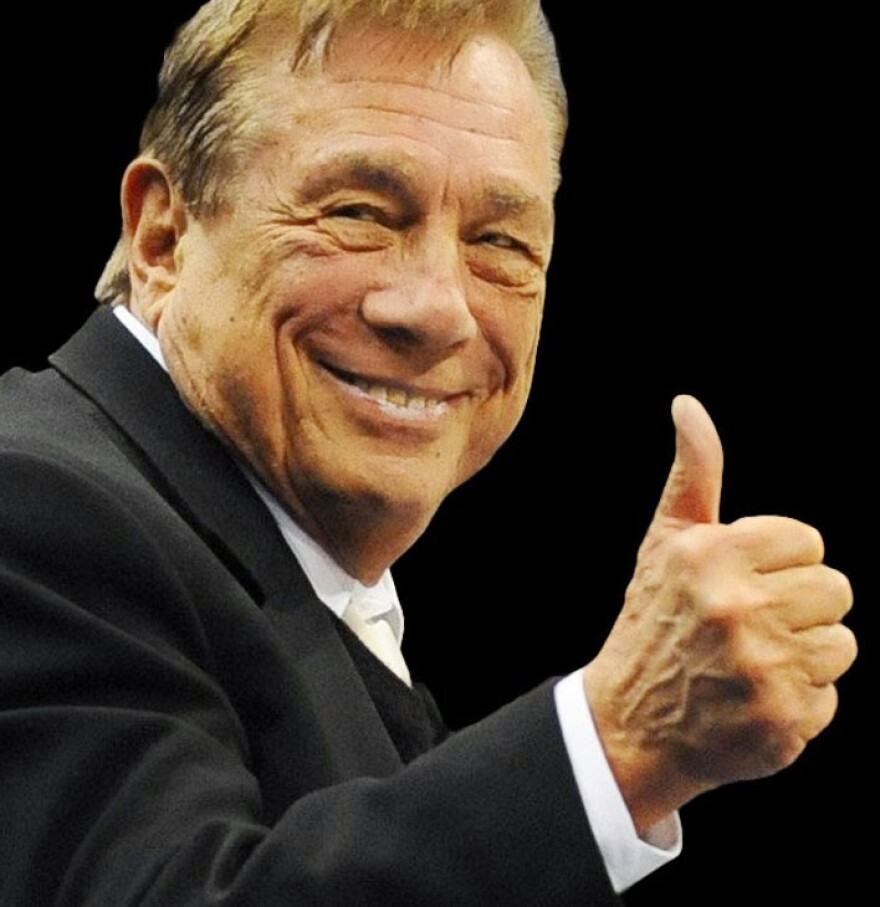It’s happened again: the dominant sports story has nothing to do with sports. Los Angeles Clippers owner Donald Sterling—sorry, this is the last time I hope to mention his name—remains in the headlines for bigoted comments that were caught on tape, twice—the first time secretly; the second, on CNN.
For citizens of conscience, this is an easy case: as the NBA presses forward to banish Sterling from the league, some may debate the penalty, but not the transgression.
For fans, though, the episode underlines a different, awkward truth. While we love to take pride of ownership in our favorite pro team, other than some t-shirts or hats—and maybe, if we’re truly devoted, a pair of Zubaz pants—we own nothing.
As much as we debate the merits of coaches and players—whose talents we can celebrate and whose disappointments we know we will ultimately outlast—we realize our team’s long-term fortunes fall back on the owners, those autocrats that we sometimes love and far more often love to hate.
While figures like Ewing Kauffman and Lamar Hunt have been lionized for their contributions to the game and to their communities, there are plenty of eccentric and downright nasty characters: The Raiders’ Al Davis, of course, whose mantra was “Just win, baby…or your fired.” Daniel Snyder, who famously responded to a newspaper’s criticism of his crankiness with a lawsuit—and fails to see any racial insensitivity in the name “Redskins.” The late Marge Schott, the last owner forced to sell her team—the Cincinnati Reds—thanks to her racist rants. Like in any good story, there are good guys and really bad guys.
In Kansas City, our baseball and football teams persevere in the shadows of their venerated founders. David Glass, a known St. Louis Cardinals fan, is still a dubious steward of what will always be Kauffman’s Royals. At least he’s recently overcome his Wal-Mart mentality—“Always Low Prices”—to put some of his billions back into the roster. Chiefs owner Clark Hunt, meanwhile, appears to be trying, honoring father Lamar’s legacy with a bit more humility and initiative: in a business that’s a meritocracy in almost every other way, Hunt seems to know he sits on inherited throne.
But the most sterling—er, shining—example is the ownership group behind Sporting KC. Prioritizing the fans and their experience has bought what club CEO Robb Heineman has called “a tremendous benefit of the doubt.” Oh, and the city’s first pro championship in recent memory hasn’t hurt.
But in an ideal world, a team’s owner will remain irrelevant and silent. Fans love to complain and even protest when we feel we’re being ignored—you know, fly a banner around the stadium, show up in black or with bags over our heads. But just keep the team functional and we will still show up. That’s not hypocritical, just Hippocratic: Do no harm, and much will be forgiven.
And that’s our awkward truth: For though they should, we know our teams’ proprietors don’t really need to earn our loyalty. They already own it.
A Fan's Notes: None Of Our Business

blogscanada.ca


